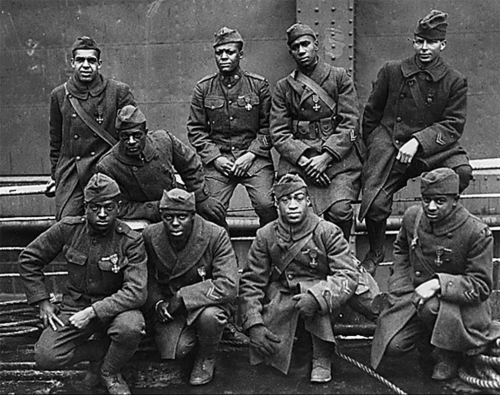Black History Month serves as an important reminder of the invaluable and immense contributions African Americans have made in this nation. It is a month-long celebration that educator Carter G. Woodson started 96 years ago as Negro History Week. Black History Month is an opportunity to rewrite/reclaim the narrative since our history has always been catalogued from the perspective of the majority.
Black History Month is all about reflection.
We should all think of Black History Month as an assessment or, even better, a showcase, where we take our Black history knowledge, and transform it into actionable and practical ways to enhance our democracy.
We hope your Black History Month is again, full of reflection, teaching, and learning. Let’s use this month to honor those who have made enormous strides in overcoming inequality—and continue working together towards creating a more equitable world for all!
Take the quiz below to test your knowledge of the brilliant achievements of our people. How Black are you? Let’s find out!
-
Who were the Harlem Hellfighters?
a. A jazz ensemble
b. A militant 60s group connected to the Black Panthers
c. The most celebrated African-American regiment in World War I
-
Who was the world’s first Black woman to win Olympic gold?
a. Vonetta Flowers (Bobsled)
b. Ora Washington (Track)
c. Alice Coachman (High jump)
-
Name the Black chef who invented the potato chip?
a. Edna Lewis
b. George Crum
c. Dixon Lays
-
Which U.S. President officially recognized Black History Month?
a. President Ronald Reagan
b. President Gerald Ford
c. President Jimmy Carter
-
Before Barack Obama became President (2009-2017), he served as what?
a. Chicago Mayor
b. Illinois Governor
c. Illinois State Senator
-
Who was the first African American Nobel Peace Prize winner?
a. Nelson Mandela
b. Ralph Bunche
c. Desmond Tutu
-
Who said, “If there is no struggle, there is no progress!”
a. Frederick Douglass
b. Malcolm X
c. Minister Louis Farrakhan
-
Which amendment abolished slavery “within the United States, or any place subject to their jurisdiction?”
a. 13th Amendment
b. 14th Amendment
c. 5th Amendment
-
Who was the first African American female recording artist to win five Grammy Awards in one year?
a. Beyoncé
b. Mary J. Blige
c. Lauryn Hill
-
Which Black woman became the first majority party Black candidate for President of the United States in 1972?
a. Shirley Chisholm
b. Maxine Waters
c. Carol Moseley Braun
*Answers are below…
ANSWERS:
- The 369th Infantry, whose members called themselves Harlem’s Rattlers, was the most famous all-Black regiment to fight during World War I. Unlike many Black soldiers who were limited to manual labor and custodial duties, the Harlem Hellfighters made it to the front lines. There were celebrated for their bravery, helping to change the perception of Black soldiers as inferior. The French called them “Hommes de Bronze” or Men of Bronze. But it was their German adversaries who gave them the name that stuck. The Germans called the Black Americans “Hollenkampfer,” German for Hellfighters.
- Alice Coachman paved the way for hundreds of black female Olympic champions. She became the first ever African-American woman to win a gold medal with her victory in the high jump event in the 1948 London Olympics.
- The man who invented potato chips was George Crum, who was both African-American and Native American, and a chef employed as a chef at Moon Lake Lodge –an elegant resort in Saratoga Springs, New York.
- Former U.S. President Gerald Ford officially recognized Black History Month in 1976, calling upon the public to “seize the opportunity to honor the too-often neglected accomplishments of Black Americans in every area of endeavor throughout our history.”
- Former U.S. President Barack Obama was elected to the Illinois state senate in 1996. In 2004, Obama attends the Democratic convention and this time to deliver the keynote speak role as his party’s nominee for a U.S. Senate seat from Illinois, which he wins. Still a relatively obscure member of the Illinois Senate, his words ignite the crowd.
- Ralph Bunche received the 1950 Nobel Peace Prize for his late 1940s work as a United Nations mediator in the Palestine conflict. He called himself ‘an incurable optimist.’ Bunche was the first African American and person of color to be so honored in the history of the prize.
- Frederick Douglass believed that progress starts with the desire for something of exceptional value, and the willingness to endure work, suffering, or sacrifice to get it.
- Lincoln and other leaders realized amending the Constitution was the only way to officially end slavery. The 13th Amendment forever abolished slavery as an institution in all U.S. states and territories. In addition to banning slavery, the amendment outlawed the practice of involuntary servitude and peonage (debt slavery).
- Lauryn Hill received the most nominations with 10, setting a record for the most nominations for female artist in one night. During the ceremony, Hill became the first woman to receive 5 Grammy Awards in a single night, and the first woman rapper to take home Best New Artist.
- Shirley Anita St. Hill Chisholm was the first African American woman in Congress, (1968) and the first woman and African American to seek the nomination for president of the United States from one of the two major political parties (1972).
